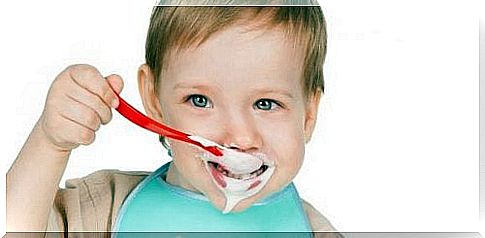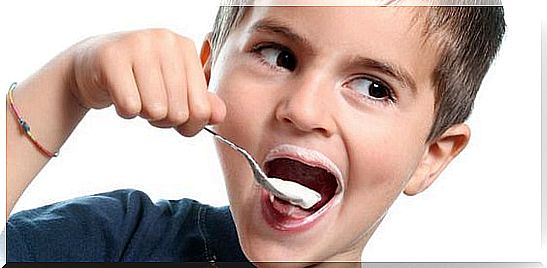How Do Probiotics Help Children And Pregnant Women? – Being Parents

They are particularly beneficial during pregnancy because they promote the recovery of the body and strengthen the defenses. In addition, probiotics are ideal while breastfeeding, as they help improve the digestive and immune system.
What are probiotics?
These are microorganisms that stay alive in our body, where they coexist with hundreds of bacteria. All these microscopic organisms promote a balance in the intestine, or rather in this community called the intestinal microbiota. It is very important for the human body to maintain this balance between microorganisms, to avoid damage caused by other bacteria.

From time to time, problems with your diet, ingestion of medications, stress, illness or other factors affect the intestinal flora. This results in the reduction of your defenses and the appearance of infectious problems.
Probiotics are helpful in attacks from harmful bacteria. The main function of these organisms is to protect the system they colonize from bacteria and pathogens. However, not all of them offer the same benefits. Some are more powerful and effective than others.
How do probiotics help our body?
Research has shown that probiotics have a particular effect on the immune system and on gut health. The consumption of probiotics is therefore recommended in the event of diarrhea or illnesses such as irritable bowel syndrome and other intestinal disorders.
According to the same research, they are effective in treating acute diarrhea when it is infectious in children. They also have an antibiotic effect to prevent gastrointestinal problems. Their immune function is undeniable. This is because probiotics protect the intestinal flora from the proliferation of harmful bacteria.
In addition, the consumption of probiotics has been shown to improve cases of lactose intolerance. We are also considering using probiotics to treat colon cancer, because they have an effect on pathologies of the intestinal microbiota. Indeed, it is proven that they prevent the development of this type of cancer in animals.
Probiotics have other beneficial effects:
- They prevent the onset of enterocolitis
- They improve the symptoms of poor digestion
- They help reduce symptoms of asthma and allergies
- They help prevent disorders of the urogenital tract
- They are associated with the prevention of tumors
- In newborns, they prevent the onset of infections
- They reduce symptoms in case of colds or fever
Foods that contain probiotics

These nutritional elements can be easily incorporated into our diet. You just need to eat certain foods. To find probiotics, you have to read product labels carefully. The most common components are bifidus (or bifidobacterium), lactobacilli (or lactobacillus) and fructooligosaccharides. Usually, they are found in fermented foods and dairy products, such as yogurt.
These foods are often prebiotics. This means that these are substances that promote the multiplication of bacteria like probiotics. It is for this reason that they are often found in fortified foods on the market. These are microorganisms that can appear naturally or be added artificially to enrich the product.
Probiotics are found in the following foods:
- Yogurt
- Certain fortified packaged products
- Sauerkraut, made from cabbage and fermented vegetables
- Miso soup, a recipe of Japanese origin that contains rice, beans, barley and fermented rye
- The seaweeds
- Tigernuts
- Pickles and other vegetables in brine
- Sourdough bread
- Tempeh, a food product of Indonesian origin made from fermented soybeans that is used as a meat substitute
- Dark chocolate
- Certain cheeses such as gouda
- Kefir
- Fermented soybean paste









